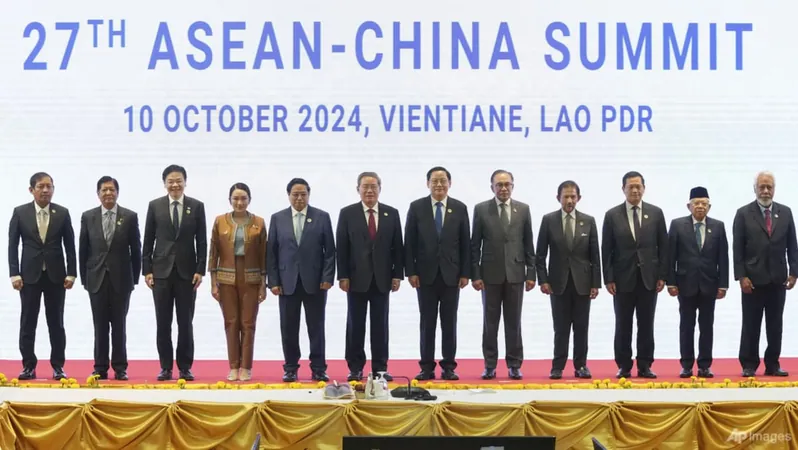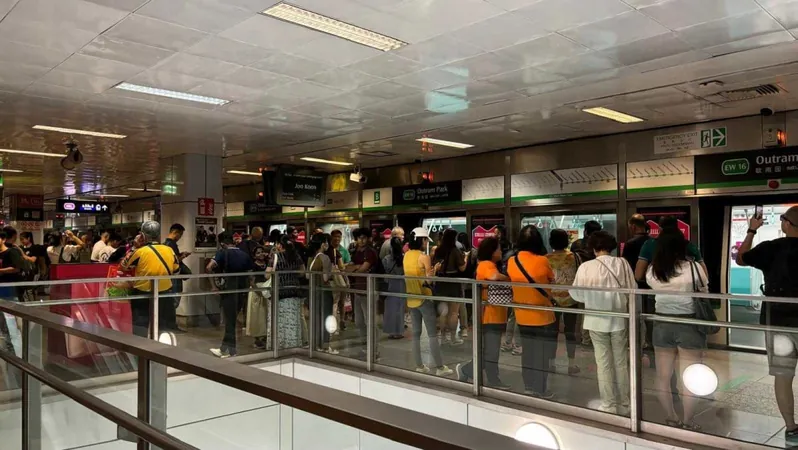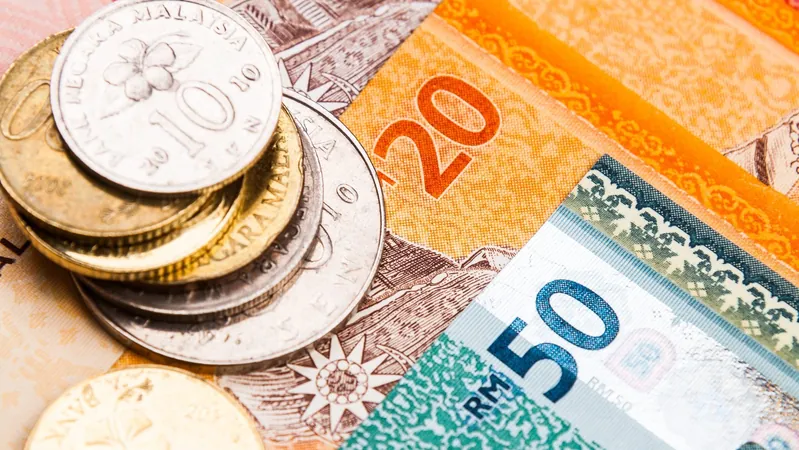
ASEAN-China Free Trade Agreement Upgrade Nearly Finished: A Strategic Move Amid Rising Protectionism, Says PM Wong
2024-10-10
Author: Li
In a significant development for global trade, Singapore's Prime Minister Lawrence Wong revealed that negotiations to upgrade the ASEAN-China Free Trade Agreement (ACFTA) are almost complete, with formal signing expected next year. The announcement came during the 27th ASEAN-China Summit held in Vientiane on October 10.
This extensive agreement, which dates back to its inception in 2010, is undergoing its second upgrade. While specific legal details remain to be finalized, leaders from Southeast Asia and China emphasized the necessity of this update in light of escalating global protectionism. PM Wong highlighted that the upgrade serves as a robust affirmation of the importance of free trade, promoting cooperative economic environments that yield mutual benefits.
Trade Figures Speak Volumes
The ACFTA, recognized as ASEAN's first free trade agreement with an external partner and China's inaugural FTA, has dramatically transformed economic relations between the two regions. Since 2010, trade between ASEAN and China has surged, with figures soaring from $235.5 billion to an astonishing $696.7 billion last year. Notably, China’s investment in ASEAN reached $17.3 billion, solidifying its status as ASEAN's largest trading partner and the third-largest source of foreign direct investment.
Preparing for Future Growth
The upgraded agreement, an outcome of negotiations that began in 2022, aims to embrace emerging sectors such as the digital and green economies. By aligning trade rules with modern economic paradigms, both regions can unlock vast potential for growth, enhancing supply chain connectivity, and consumer protection measures for micro, small, and medium enterprises.
The Ministry of Trade and Industry of Singapore stressed that the upgraded ACFTA will generate a more favorable business environment, supporting trade facilitation and providing greater transparency—an essential enhancement, particularly during times of supply chain disruptions. The cooperative framework aims to explore synergies in promising sectors while ensuring businesses can thrive amidst global challenges.
Tapping into Clean Energy and Climate Cooperation
PM Wong called for intensified efforts to promote the ASEAN-China Air Transport Agreement, facilitating increased trade, investment flows, and cultural exchanges. He pinpointed clean energy and climate change as key areas for collaboration, asserting that China could play a pivotal role in ASEAN’s transition to clean energy sources, thereby fortifying regional energy resilience.
Navigating Regional Challenges Together
Wong emphasized that the close ASEAN-China relationship is steeped in mutual respect and cooperation. He urged continued dialogue, particularly concerning maritime disputes in the South China Sea. The Singaporean Prime Minister called for adherence to international law and protective measures for maritime navigation in line with the United Nations Convention on the Law of the Sea (UNCLOS).
Collaborative Developments on the Horizon
The summit also marked significant relationships beyond China, as ASEAN celebrated the 35th anniversary of dialogue relations with South Korea and held the ASEAN-Japan Summit, reinforcing regional ties with these key nations. The ASEAN Plus Three Summit later drew leaders from China, South Korea, and Japan, alongside sessions with Indian, Australian, and Canadian counterparts.
With this series of meetings and agreements, ASEAN and its partners are aligning themselves for a future that prioritizes trade, cooperation, and mutual benefit—a resolute stand against the tide of global protectionism. As the ACFTA heads towards finalization, its implications for trade dynamics in the Asia-Pacific region are set to be monumental. Stay tuned as this story develops in what could be a game-changer for international trade relations!




 Brasil (PT)
Brasil (PT)
 Canada (EN)
Canada (EN)
 Chile (ES)
Chile (ES)
 España (ES)
España (ES)
 France (FR)
France (FR)
 Hong Kong (EN)
Hong Kong (EN)
 Italia (IT)
Italia (IT)
 日本 (JA)
日本 (JA)
 Magyarország (HU)
Magyarország (HU)
 Norge (NO)
Norge (NO)
 Polska (PL)
Polska (PL)
 Schweiz (DE)
Schweiz (DE)
 Singapore (EN)
Singapore (EN)
 Sverige (SV)
Sverige (SV)
 Suomi (FI)
Suomi (FI)
 Türkiye (TR)
Türkiye (TR)